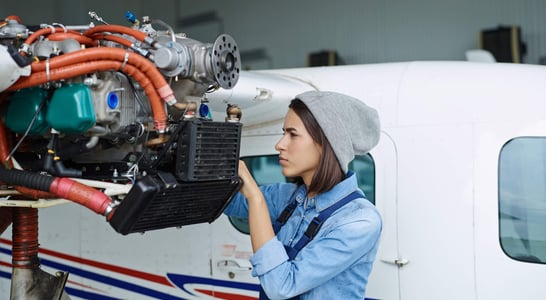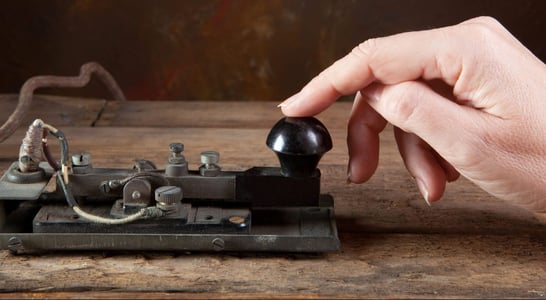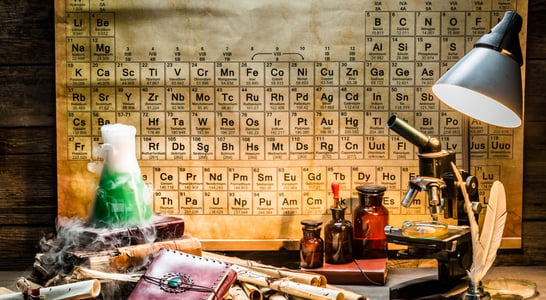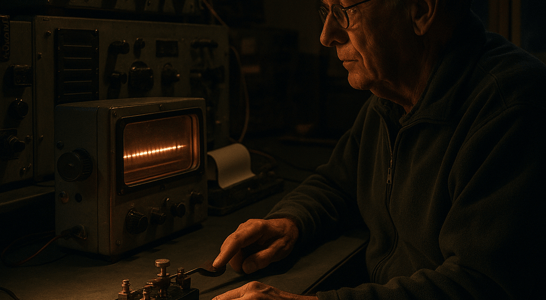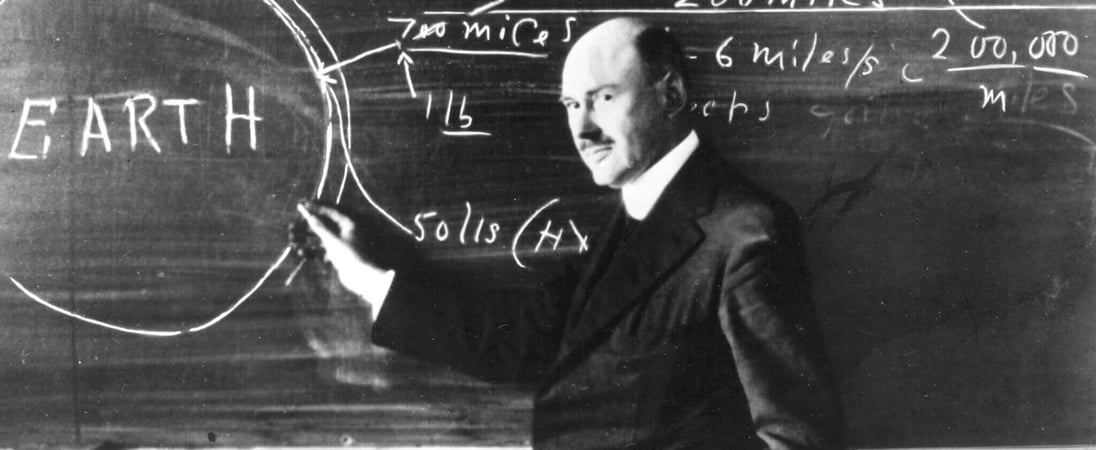
Robert Goddard Day
Robert Goddard Day celebrates the life and achievements of Robert H. Goddard, a pioneer in rocketry. Known as the “father of modern rocketry,” Goddard’s innovative work laid the foundation for space exploration.
His passion for science and engineering led to the creation of the first liquid-fueled rocket, marking a significant milestone in the journey towards space travel.
The day highlights his visionary ideas and contributions, which continue to inspire scientists and engineers today.
Significance of Robert Goddard Day
Robert Goddard Day honors Goddard’s groundbreaking advancements in rocket technology. His work proved that rockets could function in a vacuum, paving the way for space exploration.
This day recognizes his relentless pursuit of innovation despite skepticism and limited support during his lifetime.
His legacy lives on through the Goddard Space Flight Center, named in his honor, and his numerous patents and scientific papers that continue to influence modern rocketry and space missions.
History of Robert Goddard Day
Robert Goddard Day recognizes his groundbreaking contributions to rocketry and space exploration. Although he faced skepticism, Robert’s work paved the way for future space missions.
NASA established the Goddard Space Flight Center in his memory in 1959. This day marks the anniversary of his successful launch of the first liquid-fueled rocket on March 16, 1926, from his aunt’s farm in Auburn, Massachusetts.
The day is significant because it commemorates the innovations that allowed space exploration to become a reality. Robert Goddard’s work demonstrated that rockets could function in a vacuum, which was crucial for space travel.
His theories and experiments laid the groundwork for modern rocketry and space science. Celebrating this day helps inspire future generations of scientists and engineers to push the boundaries of technology and exploration.
How to Celebrate Robert Goddard Day
Launch a Mini Rocket
Kick off the celebration with a bang by launching a mini rocket! Grab a simple DIY rocket kit from a hobby store. Gather friends or family for a fun outdoor activity.
Remember to follow safety instructions, then blast off and watch your mini rocket soar into the sky!
Host a Space Movie Marathon
Transform your living room into a home theater and dive into a space-themed movie marathon. Choose classic films like “Apollo 13,” “The Martian,” or “Interstellar.”
Pop some popcorn, dim the lights, and journey through space from the comfort of your couch. Don’t forget the astronaut-themed snacks!
Create Rocket Art
Unleash your inner artist by creating rocket-themed art. Grab some paper, crayons, and paint. Draw or paint your dream rockets.
For an extra challenge, try sculpting a rocket using clay or playdough. Display your masterpieces around the house for an out-of-this-world gallery!
Conduct Fun Science Experiments
Channel your inner scientist with some simple science experiments. Make a baking soda and vinegar rocket to see a mini eruption.
Or create a balloon rocket using a string, a straw, and a balloon. These hands-on activities are sure to ignite curiosity and excitement about science.
Explore Rocketry History
Visit a local science museum or planetarium to learn about the history of rocketry. Look for exhibits on space travel and rocket science.
Many museums offer virtual tours if you prefer exploring from home. Learn about the pioneers of rocketry and their incredible contributions.
Write a Space Story
Let your imagination take flight by writing a space adventure story. Imagine traveling to distant planets or meeting extraterrestrial beings. Share your story with friends and family. You might even inspire someone else to dream about space exploration!
Robert Goddard Day FAQs
Did Robert Goddard have any unusual inspirations for his rocket experiments?
Yes, a childhood experience profoundly influenced him. At 17, he climbed a cherry tree and imagined building a device to reach Mars.
He later referred to this day as his “Anniversary Day,” marking the beginning of his passion for space exploration.
Did Robert Goddard ever build rockets for non-scientific purposes?
Yes, Goddard worked with the U.S. military during World War II on rocket-assisted takeoff technology for planes.
He developed small rockets to help heavy bombers lift off from short runways.
Although these devices were not used widely during his lifetime, they paved the way for jet-assisted takeoff systems later adopted by the military.
This collaboration marked a rare instance where his rockets had a direct, practical application beyond space exploration.
How do different communities celebrate Robert Goddard Day?
While primarily observed in the United States, some space enthusiasts worldwide mark the day by launching model rockets, hosting educational workshops, and discussing Goddard’s contributions to rocketry.
In Worcester, Massachusetts, his hometown, local schools and organizations often hold special events and lectures.
What are some quirky trivia facts about Robert Goddard?
Goddard was a distant cousin of actor Mark Goddard, known for his role in the TV series “Lost in Space.” Additionally, he was inducted into the National Inventors Hall of Fame in 1979, long after his death.
Did Robert Goddard receive any unique honors posthumously?
In 1964, the U.S. Postal Service issued an 8-cent airmail stamp featuring Goddard and a rocket launch. This stamp commemorated his contributions to rocketry and space exploration.
Are there any fun myths or misconceptions about rockets related to Goddard’s work?
One amusing misconception is that early rockets were thought to push against the air to move.
Goddard demonstrated that rockets operate based on Newton’s third law of motion, allowing them to function in the vacuum of space.
How did Robert Goddard’s work influence popular culture?
Goddard’s pioneering efforts inspired many science fiction writers and filmmakers.
His concepts of space travel influenced works like “Flash Gordon” and “Buck Rogers,” which captivated audiences in the early 20th century.
What unique challenges did Robert Goddard face when launching his first liquid-fueled rocket?
Robert Goddard’s first successful liquid-fueled rocket launch in 1926 faced unexpected challenges.
For instance, the rocket’s fuel tank had to be pressurized manually using bicycle pumps, as no suitable pressurization systems existed. Additionally, the rocket only flew 41 feet but demonstrated the viability of liquid fuel propulsion.
He had to test in relative secrecy due to skepticism from peers and the public. Despite these hurdles, the launch was a landmark moment in modern rocketry.
Did Robert Goddard have any notable hobbies or interests outside of rocketry?
Goddard had a keen interest in music and played the piano. He also enjoyed reading science fiction, which fueled his imagination and inspired his groundbreaking work in rocketry.
How did Robert Goddard’s early experiments impact his later achievements?
Goddard’s early experiments with solid-fuel rockets provided valuable insights that he applied to his development of liquid-fueled rockets.
These initial trials helped him understand the challenges of propulsion and stability, leading to his successful launch in 1926.
Also on ...
View all holidaysNational Panda Day
Nature's cuddly ambassadors, with a diet that's 99% bamboo and an unmistakable appearance that's sure to melt your heart.
National Lips Appreciation Day
Admiring the unique curve that adds personality to a smile, appreciating the canvas that speaks without words—lips have their own story.
National Artichoke Day
Green and spiky, a culinary delight with tender hearts concealed, waiting to be savored, offering a taste of earthy goodness.
We think you may also like...
Aviation Maintenance Technician Day
If you know someone who works in aviation, give them a big thanks for keeping fliers and everyone else safe on Aviation Maintenance Technician Day.
Morse Code Day
Learn a valuable skill, and a fun new way to communicate with friends and family by trying your hand at the simple but highly useful Morse Code.




